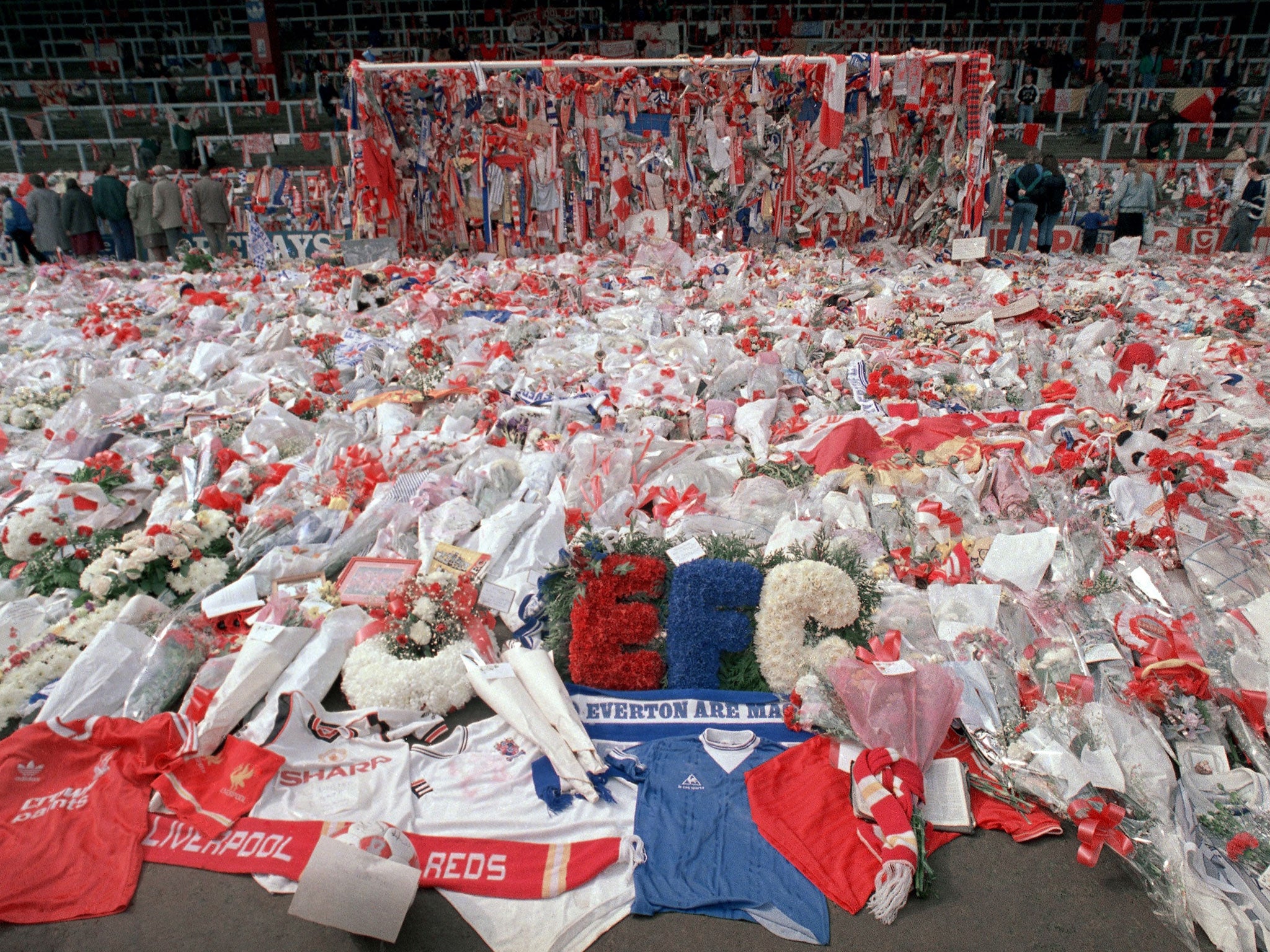Comment: After 25 years of horrendous torment, the Hillsborough families finally seem set to receive the justice and dignity they deserve
It is a great victory of working people against the abuse of power

The simple tribute from a father to a son was achingly tender when the second inquest into the death of 96 people in British sport’s greatest tragedy opened last week. Twenty-five years of voiceless anguish heaped on top of terrible loss lay behind the words of Wilf Whelan. The death of his son Ian inverted convention, as did the experience for many of the bereaved. It was the wrong way round.
Parents are not used to burying their children. There is no adequate coping mechanism available to modern families, which tend to be nuclear in number rather than the extended variety of generations past, when child mortality was more of a feature of working-class lives.
The appalling treatment of the dead and their families by the state apparatus condemned relatives to a life of unrelenting torment. The loss of a son, a daughter, a sibling, a parent in such circumstances is in its own way a life sentence for those left behind. To deny the bereaved the dignity of an honest understanding of how loved ones lost their lives, and to besmirch their reputations with damning accounts, was a pain beyond endurance.
The courageous protest that led to the quashing of the original verdicts two years ago and the appointment of a new inquiry under the aegis of coroner Lord Justice Goldring constitutes one of the great victories of ordinary working people against abuse of establishment power. It is a tale of the common man teaching those who make the rules how to conduct themselves while reminding them that the class of individual they sought to dismiss without a second glance is just as substantial as they are, if not more so.
Lord Justice Goldring is quickly emerging as a hero for the sensitivity of his early deliberations and the tone he has set. He intuited the need of the bereaved to speak in a public forum that carried force; the words of those paying tribute will not disappear into the ether but will be recorded in law for posterity.
Anyone who consults the ledgers 100 years from now will know that those who died were fine people from honest homes, who left us through no fault of their own, paying a cruel price for the love of a football team, a relationship that has deep roots in the communities from which they came.
Wilf Whelan wanted the world to know that his son was not the hooligan the police would have him be, but an ordinary lad making his way in the world. As a boy “he was constantly playing football in the back garden while commentating on himself. And he was a son that any family would have been proud of.
“One of his highlights was passing his driving test first time just after he had turned 18 years old. His other love was music, especially U2, and Joanne [his girlfriend] told us he insisted on sitting near the largest speaker in the cinema when he took her to see the U2 film Rattle And Hum and would sing it to her most mornings on the way to work and on the way home again.”
This is the stuff of life we take for granted, just as Wilf Whelan did until that day 25 years ago when his son did not return from an FA Cup semi-final. This was an age before global ownership of football institutions from the great English metropolis, an era before the Premier League, when clubs had a deep cultural connection to their surroundings and Liverpool ruled the land.
The team that 96 people died supporting is paying its own tribute on the pitch in a league they have not won for 24 years. If feelings will not be stretched enough at the pivotal home match this coming Sunday against Manchester City, the fixture coincides with football commemorations to mark the 25th anniversary of the game against Nottingham Forest, which was abandoned after six minutes. All matches across the Football League and FA Cup will kick off seven minutes later, which includes a minute’s silence, and Liverpool will sport an emblem on their shirts bearing the legend “96 never forgotten”.
There is a groundswell of emotion behind the idea of Steven Gerrard embellishing a marvellous career with a championship medal. Gerrard, who has given generously to fund the fight for justice, would of course trade all his medals and more for the life of his cousin, Jon Paul Gilhooley, the youngest to die on 15 April, 1989, aged just 10 years old. Jon Paul’s ticket came at the last minute, and off he rode with his uncles towards what should have been an afternoon of unimaginable joy.
The inquest is to last a year. We are at the beginning of a civilised end for the families. And for those who believe in the afterlife, there is comfort to be had in the thought of Jon Paul looking down on his cousin next weekend, giving him a celestial push toward footballing nirvana. One thing is certain: Gerrard will be looking up. Justice at last.
Subscribe to Independent Premium to bookmark this article
Want to bookmark your favourite articles and stories to read or reference later? Start your Independent Premium subscription today.

Join our commenting forum
Join thought-provoking conversations, follow other Independent readers and see their replies